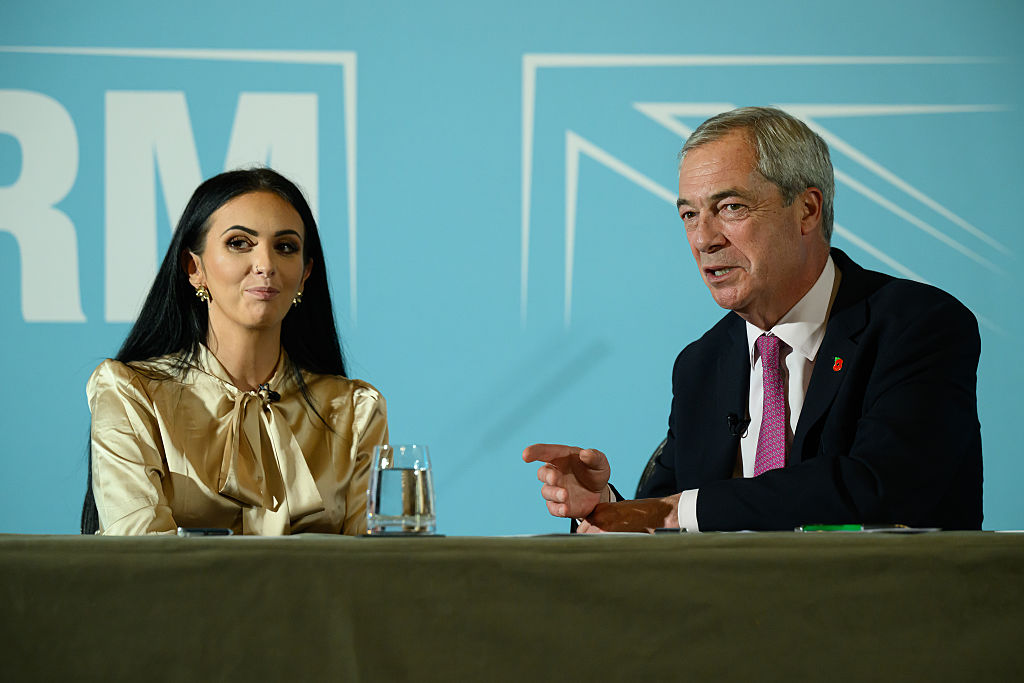Nigel Farage’s call this week for parliament to seize control of the grooming-gangs inquiry sounds superficially compelling. The government’s statutory inquiry has stumbled – survivors have resigned, the chair has stepped down, and momentum appears lost. Why not, Farage argues, bypass this chaos with a parliamentary investigation that can summon witnesses, operate transparently, and confront uncomfortable truths about ethnicity that others will not touch?
Unfortunately, replacing a flawed process with a fundamentally unsuitable one does not constitute progress – merely a different type of institutional failure.
Farage’s proposal, unveiled alongside resigned survivor advocate Ellie-Ann Reynolds, positions a select committee inquiry as the antidote to bureaucratic paralysis. The template, though Farage does not explicitly cite it, resembles parliament’s greatest investigatory hits: the Parliamentary Commission on Banking Standards after the London inter-bank offered rate, the Treasury Committee’s post-mortem of Northern Rock, the joint inquiry into Carillion’s collapse. These were, in fairness, heavyweight parliamentary investigations that delivered policy impact and public accountability.
They were also examining fundamentally different things. The Banking Standards Commission scrutinised regulatory failure and corporate governance, not thousands of individual victims requiring trauma-informed testimony procedures. The Libya intervention inquiry assessed Whitehall decision-making; it did not need safeguarding officers or anonymity protocols for witnesses still living in fear of reprisal. Child sexual exploitation demands both rigorous institutional scrutiny and sophisticated victim support. Parliament, for all its powers, is built for the former but structurally incapable of the latter.
a ‘grooming-gangs select committee’ would include precisely zero Reform MPs
There is also an irony embedded in Farage’s proposal that appears to have escaped notice entirely. Under normal committee-allocation rules, proportional representation balanced across parties, a ‘grooming-gangs select committee’ would include precisely zero Reform MPs. The investigation would be dominated by back-bench Labour members.
These are MPs accountable to local party machines, former council colleagues and selection panels deeply intertwined with municipal politics. Some of the worst institutional failures requiring investigation are tied directly to Labour-dominated local authorities – chiefly Rotherham, Rochdale and Telford. Asking Labour backbenchers to examine their own political ecosystem is naïve about how committee politics works.
Farage’s emphasis on speed, meanwhile, reveals either opportunism or genuine misunderstanding of what this inquiry requires. He frames the government’s three-year timeline as evidence of dysfunction. With ongoing prosecutions pursuing criminal accountability, there is little justification for rushing an inquiry at the expense of thoroughness. In reality, three years may barely suffice.
Doing this properly requires forensic evidence-handling, thousands of documents, secure testimony protocols and cross-examination of reluctant witnesses. Parliamentary committees typically sit for one or two afternoons per week when MPs are not managing constituency work, Westminster votes or other responsibilities. A select-committee investigation running on this schedule, with MPs splitting their attention across multiple briefs, is not remotely equipped for work of this scale.
The government’s proposed structure – a national framework coordinating localised investigations, each examining regional networks before synthesising findings – actually matches the crime’s geography. It is unclear how any of this would function under parliamentary oversight conducted in two-hour sessions between votes on the Budget and debates about planning reform.
Recent polling from YouGov shows 70 per cent of the British public trust judges to tell the truth, compared with just 22 per cent who trust MPs. The findings of an inquiry are only as powerful as the public’s willingness to believe and engage with them. There is a reason every major recent inquiry addressing systemic institutional failure has been chaired by a senior judge or former judge: Grenfell, infected blood, Hillsborough, Covid-19, the Horizon scandal.
The survivors of grooming gangs, already catastrophically failed by every institution meant to protect them, deserve the same standard. Telling them their abuse warrants a ‘quick or less rigorous investigation’ sends an appalling message about whose suffering merits institutional seriousness.
Parliamentary inquiries operate on fundamentally different resource models from statutory inquiries. They run on budgets of hundreds of thousands rather than millions, competing with every other committee for limited House of Commons funding. Large expenditures for external counsel, survivor support or specialist research require approval from parliamentary administrators already stretching tight budgets. Statutory inquiries are expensive precisely because they are properly resourced. The Infected Blood Inquiry has cost more than £150 million; Grenfell will exceed that. These figures reflect what thorough investigation of systemic failure actually costs when done properly.
None of this constitutes an argument for accepting the status quo. Farage has identified a genuine crisis: the government’s inquiry has indeed faltered, and survivor confidence is shattered. The chair position requires someone commanding genuine trust, and terms of reference that do not obscure uncomfortable truths about ethnicity and institutional cowardice are non-negotiable. It seems there has been deep mismanagement and attempts to widen the inquiry’s scope – and then further attempts to obscure that. These are legitimate concerns demanding an urgent response.
But fixing a flawed inquiry does not require trading judicial independence for partisan control, trauma-informed procedures for parliamentary theatre, and adequate resources for budgetary constraint. If Farage genuinely wants accountability, he should be demanding that the government’s inquiry work properly: transparent survivor engagement, rigorous terms of reference and an independent judge or former judge as chair. That is harder than proposing an alternative inquiry, but Reform has real leverage here. The inquiry chair has not yet been appointed, the terms of reference are still being shaped, and there is time before February to influence how this works rather than grandstand about alternatives.
The victims of grooming gangs have already been sacrificed once to institutional expedience. What they do not need is another inquiry designed around political convenience rather than their welfare – justice performed for cameras, constrained by parliamentary schedules and budgets, overseen by the same political class that failed them the first time.







Comments